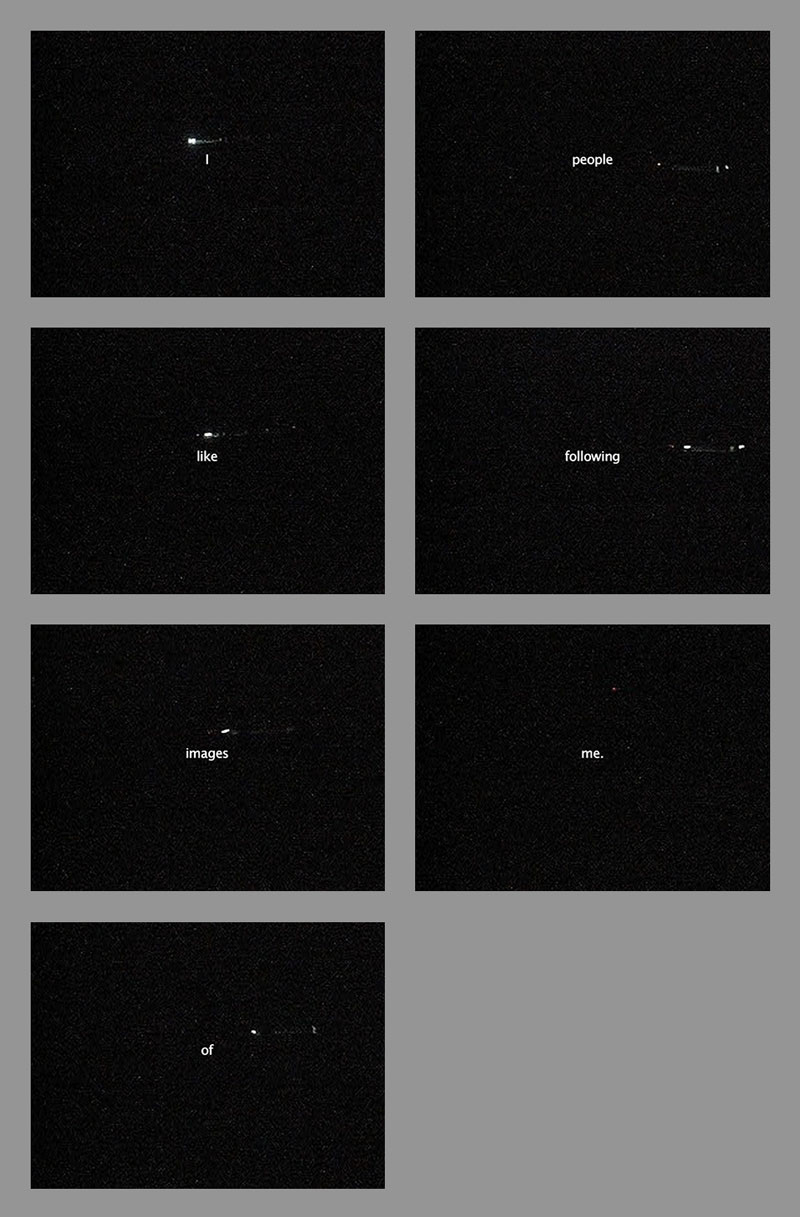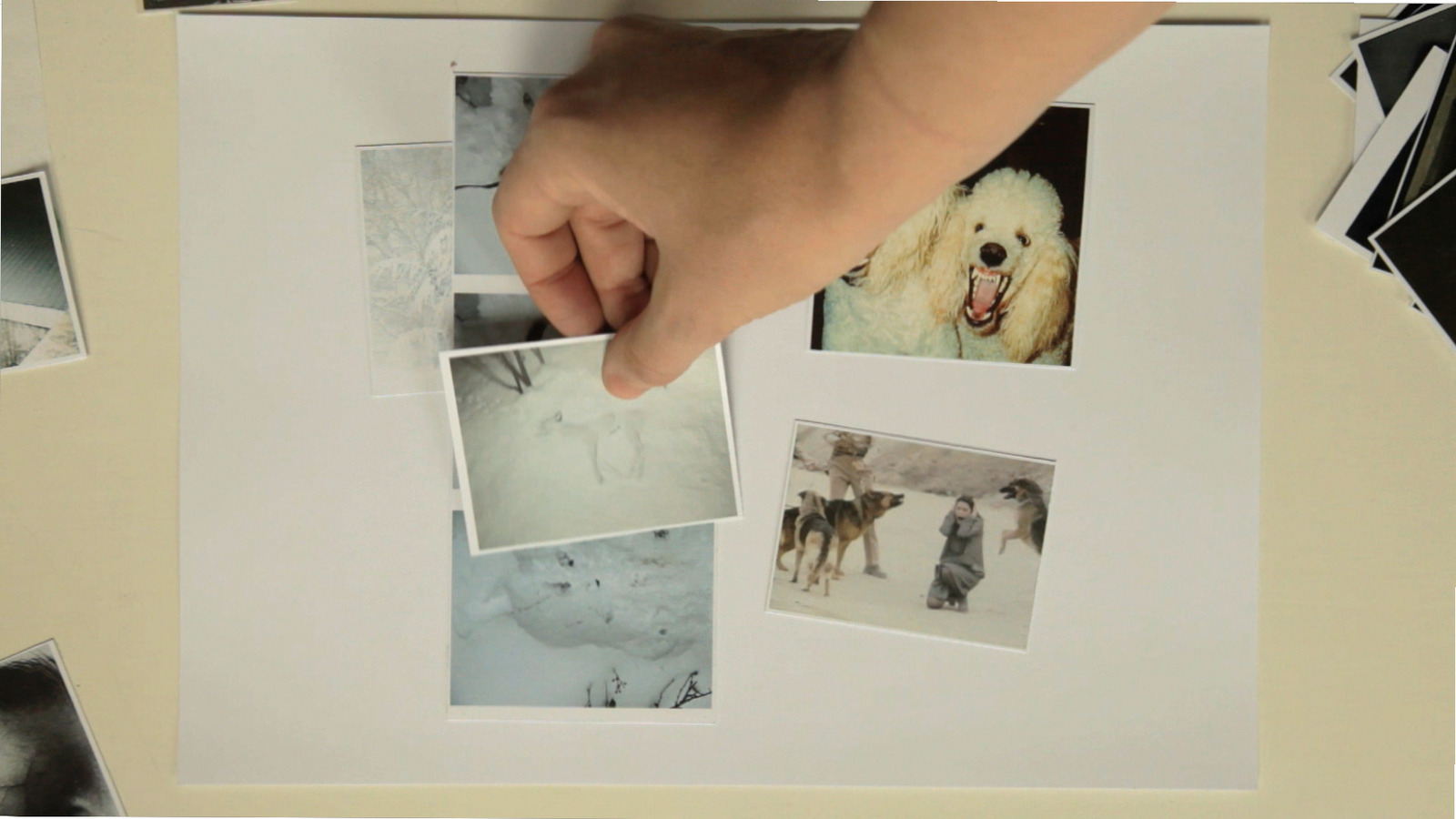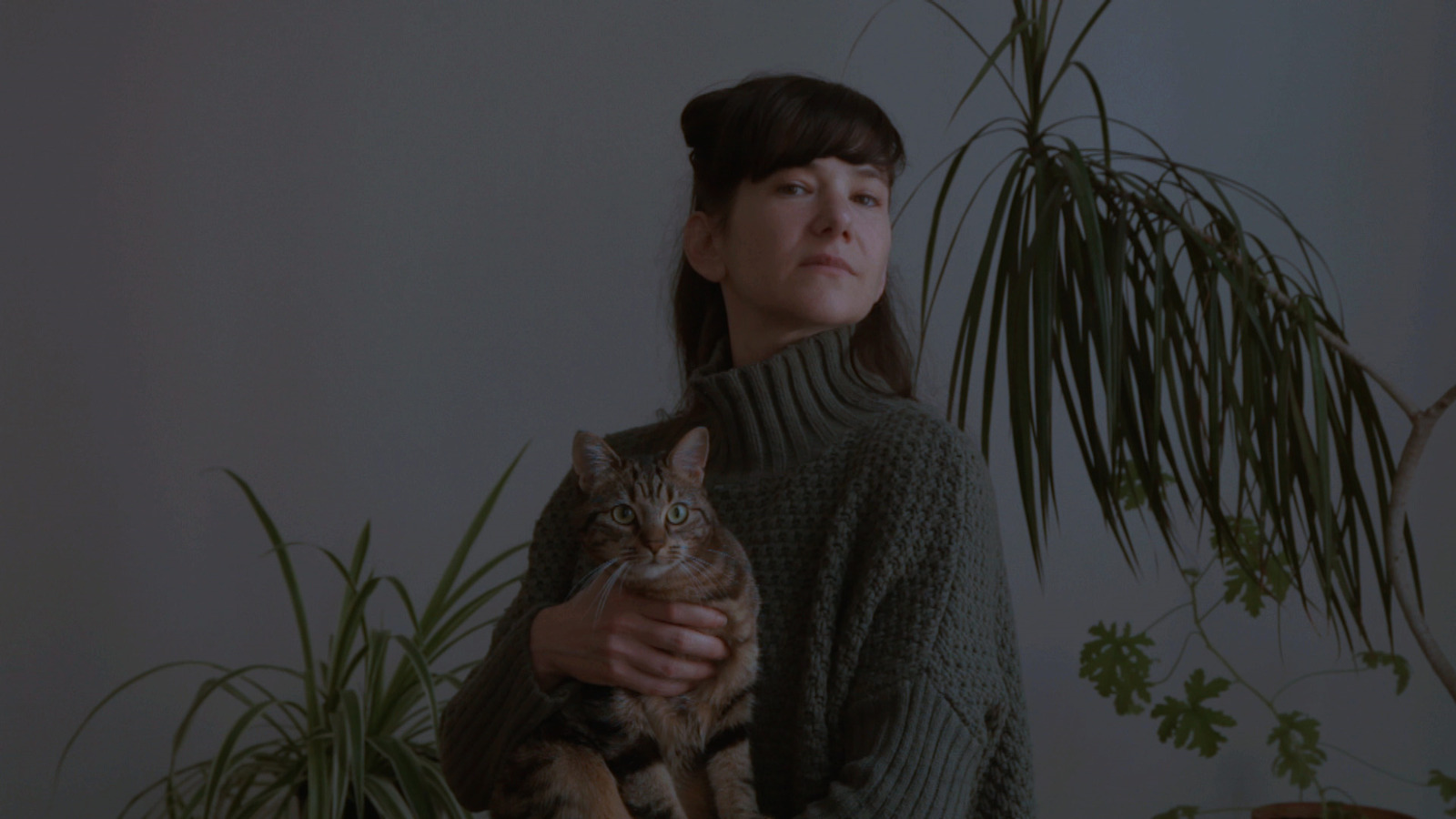Artist: Alex Reynolds
Exhibition title: Ella es una película
Venue: Marta Cervera, Madrid, Spain
Date: November 16, 2016 – February 5, 2017
Photography: all images copyright and courtesy of the artist and Marta Cervera, Madrid
Each person has multiple ways of perceiving and projecting him or herself in relation to others. Artist and filmmaker Alex Reynolds takes on this simple premise as a starting point. For years, she has been exploring and manipulating the codes of cinematographic language through different media (text, photography, performance, theater, video). This has led her to make movies without a camera, to play with and even reverse the notion of “exteriors”, and to test out narrative alternatives to the script. She has incorporated all of these experiences to her way of filming, making up a body of work where subject and object never occupy a stable position.
If the act of looking implies the possibility of being looked at – something that never happens at the cinema –, our position towards the other takes on a different weight. In this context, being a viewer is both an exchange and a learning experience, from which each individual will have to draw his or her own conclusions. Some will see films where there aren’t any, while others will turn their eyes away or wish to reach out to the artist in order to know what she would have replied to the 27th question in the questionnaire of the piece But They Are Not You (2011), a work conceived for two different moments and audiences. On this occasion, Alex Reynolds played at usurping the point of view those who wished to participate in the piece, inventing a fictional character for each of them. From a general point of view – the one provided by the book that later formalizes the piece –, one realizes how dramatic differences become the closer they are to the original. Suddenly, the slightest departure can seem monstrous to us, or disorient us. In fact, the latter emotion is the one awakened by Marta (2010-2016), a variation of a piece conceived specifically for this gallery. It involves an audio track that generates ambiguous situations, since, whilst listening, the viewer turns into the protagonist and cameraman of a fiction that he or she must turn into images. In order to activate it, one needs to pick up the headphones in the front desk.
Equally disquieting are the changes in perspective in De Día (2015), a film that the artist made up of recordings and images from her personal archive. A subtle plot announces a chase but, in this case, there is no clear or dominating narrator. To whose voice do the images we are looking at belong, or on whose behalf do all these fragments speak? The image quality and presentation might lead us to think they are memories; isolated moments that come back to use over and again. They may be remains of a traumatic episode, or one that we miss – images that we don’t choose but which chose, and even chase, us. But as the repetitions unfold, we experience something unusual: these images strip off their original referents and keep moving forwards, aided only by rhythm, which is what keeps them alive.
Meanwhile, we, as viewers, try to give them meaning and make them refer to something or someone, perhaps because we cannot accept that they are intelligent, and much less so that they may survive us. Living with others requires adapting to a language and internalizing its codes, a game reckoned with in Ver Nieve [To See Snow] (2016), her most recent work. In it, Alex Reynolds begins to draft and meditate on the preparation of the script for a future film, submitting a series of interlocutors to several tests, who, through their improvised answers, will become her co-writers. Reading is key here, and learning to do so is what drives a narrative that is still a dormant one. The project responds to the artist’s wish to increasingly delegate more decisions to others, and to think about her first feature film, of which we can anticipate elements such as a flexible structure that accommodates and learns from different viewpoints, through always within a set framework with specific rules. It is not by chance that hospitality is another recurring theme, as seen in Bienvenida [Welcome] (2009) – the uncomfortable welcome that seems to require reciprocity, and which conditions how we receive the rest of the works, keeping us on our toes, or setting us against them.
In a world paralyzed by images, crammed with noise and mediations, Alex Reynolds not only invites us to think about our role as viewers, but encourages us to defend it. Tell me, what do you think of all this? Maybe you don’t see what I see. Maybe we will have to negotiate new forms of communication. Learn from our own bias. Walk in the dark. What do we have to lose?
-Andrea Valdés
Alex Reynolds, But They Are Not You, 2011-2015, Artist Book
Alex Reynolds, But They Are Not You, 2011-2015, Artist Book
Alex Reynolds, De día, 2015, Vídeo, 18m 24s
Alex Reynolds, De día, 2015, Vídeo, 18m 24s
Alex Reynolds, Marta, 2010-2016, Audio site-specific, 6m
Alex Reynolds, When Smoke Becomes Fire My Love Reveals Things Unknown Were Mine All Along, 2010, Photo, slide series
Alex Reynolds, Ver nieve, 2016, video still, HD Video, 30m
Alex Reynolds, Ver nieve, 2016, video still, HD Video, 30m
Alex Reynolds, Ver nieve, 2016, trailer, HD Video









